With the Black Caps closer than they've ever been to conquering the world of cricket, those running the sport are hopeful that the team's success can translate to the grassroots level.
Insight has been talking to team members, management, clubs and schools to see if the summer game can be resurrected.
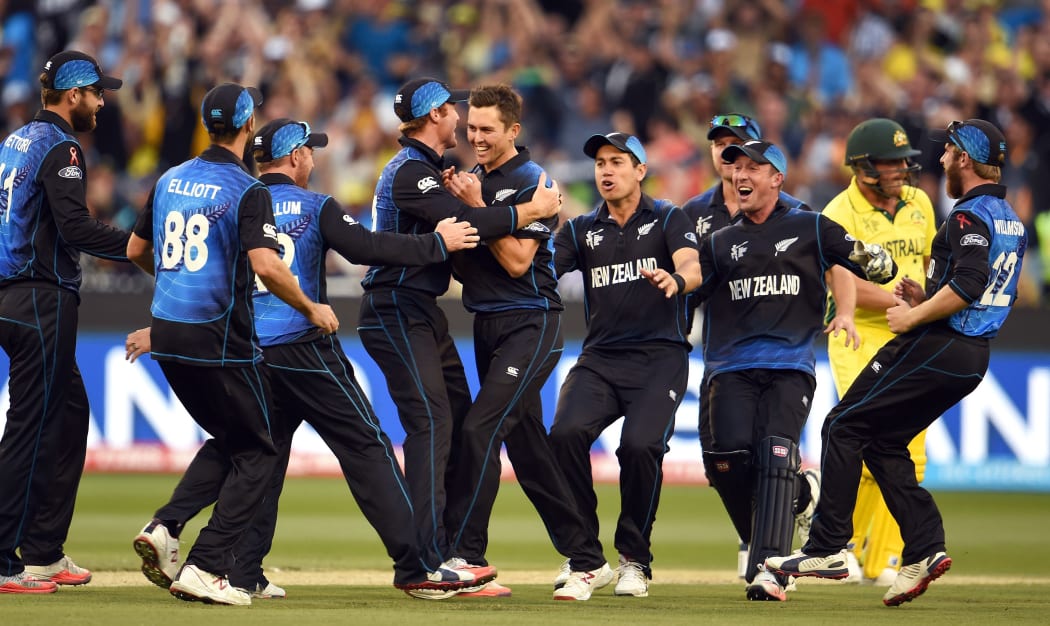
New Zealand fast bowler Trent Boult (C) is congratulated after dismissing Australia's Aaron Finch. Photo: AFP
The latest figures from the Secondary Schools Sports Council show that in just the past three years, 17 percent fewer students are playing cricket.
Numbers have been steadily declining and fell below 10,000 for the first time last year - fewer than badminton - while both basketball and football are twice as popular.
But many within the sport are pinning their hopes on the "World Cup Effect" and the new legion of fans the tournament inspired.
That fervour was never more evident than when several hundred fans, some of whom had never followed cricket before, greeted the team at The Cloud on Auckland's Queens Wharf when they returned home across the Tasman.
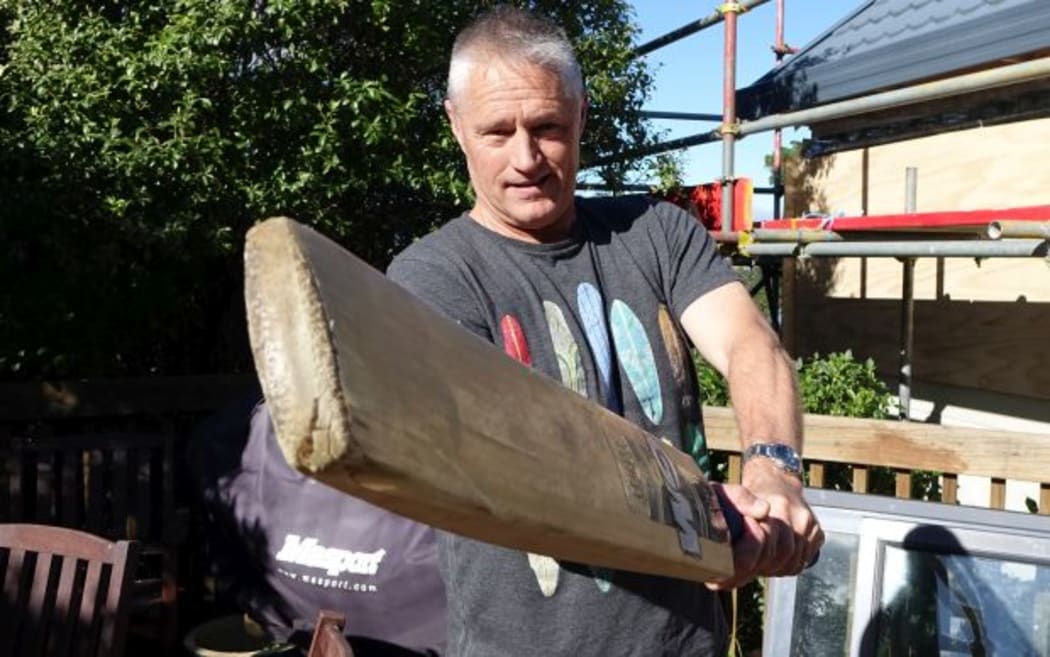
New Zealand's World Cup operations manager Gavin Larsen believes the tournament was a launching pad for the sport. Photo: RNZ / Max Towle
New Zealand's World Cup operations manager and former Black Cap Gavin Larsen said it was an opportunity the sport needed to grasp.
"I said right from the start that the legacy aspect of this Cricket World Cup is crucial and it was enormously successful and it has given New Zealand cricket, I believe, a magnificent launching pad," he said.
"[We've got to] push cricket upward and outward for the next decade or two and there should be no reason in the slightest why we can't grasp this opportunity."
Canterbury Cricket chief executive and former Black Cap captain Lee Germon said there would only be a window of opportunity for a certain amount of time.
"An example here is our junior cricket association is in the process of putting in place a junior cricket role and one of their main tasks will be to grab that interest and transfer that into kids playing cricket," he said.
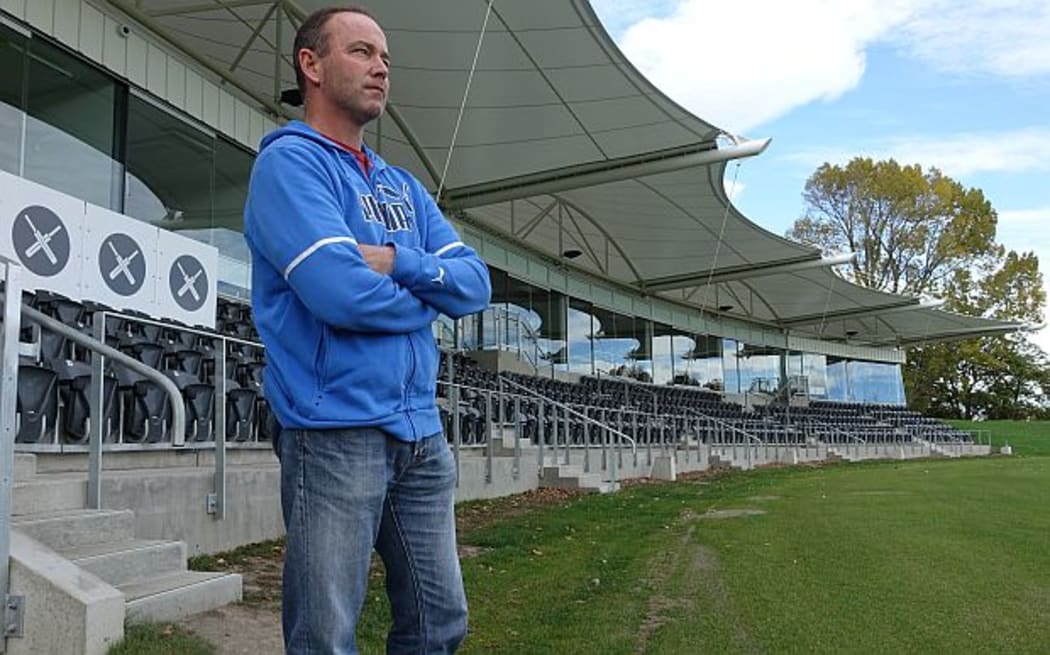
Canterbury Cricket CEO Lee Germon surveys the country's newest cricket ground, Hagley Oval. Photo: RNZ / Max Towle
Though they were eventually defeated by Australia in the final, part of the appeal for previous non-supporters was the Black Caps' attacking, entertaining brand of cricket.
Almost three years into the job, the team's coach Mike Hesson said the team's true character was starting to show.
"The way we want to play our cricket is a brand of cricket that spectators want to watch and players want to play and hopefully if we do it that way and play the game in the right spirit, then we'll get the next generation of cricketers," he said.
"That's not something you necessarily set out to achieve but you hope you get that result."
The side's number one spin bowler in test cricket, Mark Craig, said Hesson and the enthusiasm of fearless captain Brendon McCullum had lifted the team.
"The team culture that we've got in the Black Caps at the moment is top notch - it's the most fun I've ever had playing cricket."
The side is in England at the moment on a seven week tour that features two test matches, five one-day internationals and one Twenty/20.
The games will be played overnight New Zealand time, making it difficult for anyone other than die-hard cricket fans to follow live.
But for Gavin Larsen, when the summer comes again, youngsters won't have forgotten the World Cup.
"It won't take much to regenerate that enthusiasm," he said.
"I think if you played a video clip of the Cricket World Cup with Brendon and his guys performing the way they did, I think you'll see a lot of hands in the air.
"And then it's the big test - we've got the hands in the air, now we've got to get them on a database and introduce them to the game.
Auckland Cricket's chief executive Mark Cameron said schools no longer had the resources to cater for social players and instead focused on their top teams.
"That's where our club structure needs to head - it needs to embrace, support, and link-in with schools so it can take ownership of the social cricketer," he said.
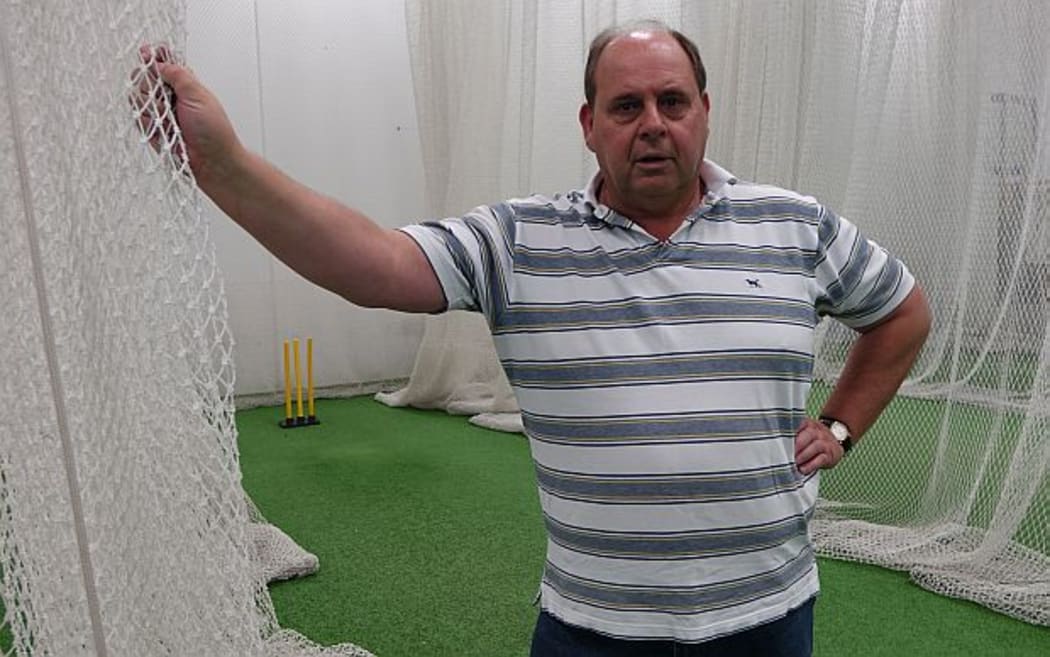
Suburbs New Lynn Cricket Club chairman Ross Hick proudly shows off the club's new facility. Photo: RNZ / Max Towle
The Suburbs New Lynn Cricket Club tries to do just that.
A little more than three years ago, the club's chairman, Ross Hick, oversaw the construction of a $1.6 million indoor training centre.
He said the centre was an asset not just for the ardent cricketers.
"All of our teams use it, right through to our year five juniors and it's booked out from 4 until 10 each night."
He said the club's senior numbers had remained steady over the past few years, but it was gradually losing juniors.
He too is pinning a lot of hope on the "World Cup Effect".
"There are a lot of choices out there in terms of sport - cricket is a long game and takes up a lot of concentration and time," he said.
"You've got to have something extra that attracts youngsters to the game. Once they start playing, they'll stay.
"I hope the World Cup has a huge effect. If the Black Caps are successful, it will attract more people to the game. The kids will want to go out into the back yard and start playing it, and then they'll want to join a club."
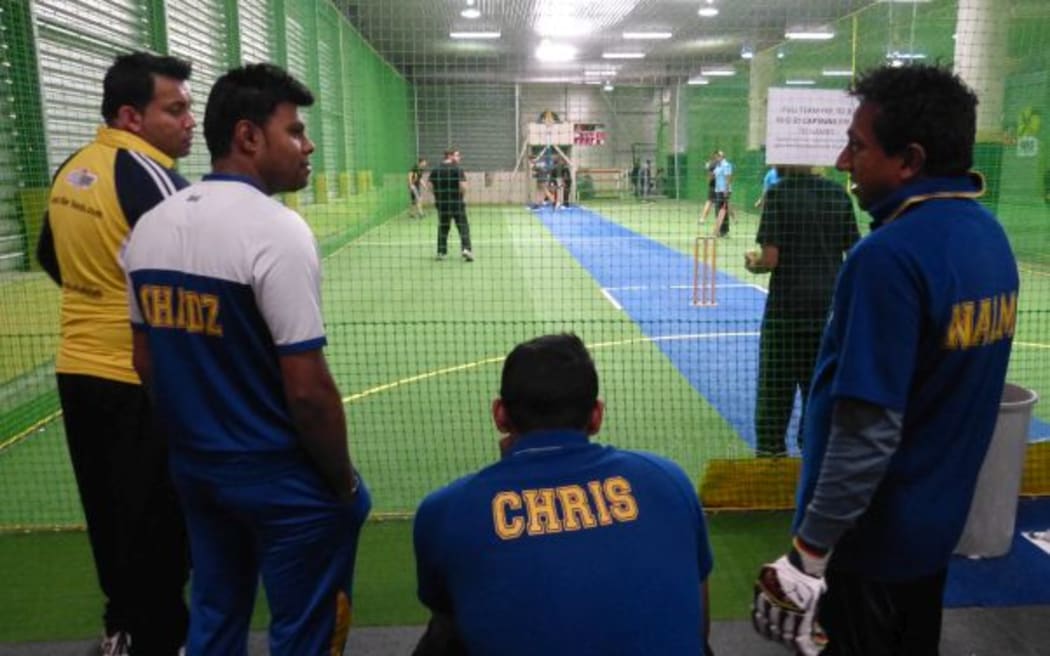
A team of Sri Lankans, including Nal Ariyawansa (right), watch a game of indoor cricket. Photo: RNZ / Max Towle
During an evening at Wellington's Indoor Sports Centre, cricketers and netballers blend into one furious blur of colour.
The centre is oversubscribed with indoor cricket teams every year.
One player is Sri Lankan, Nal Ariyawansa, who moved to the country partly because of its strong cricket background.
"Since the 1996 World Cup win for Sri Lanka, cricket spread all over the country. I can see that happening here too," he said.

